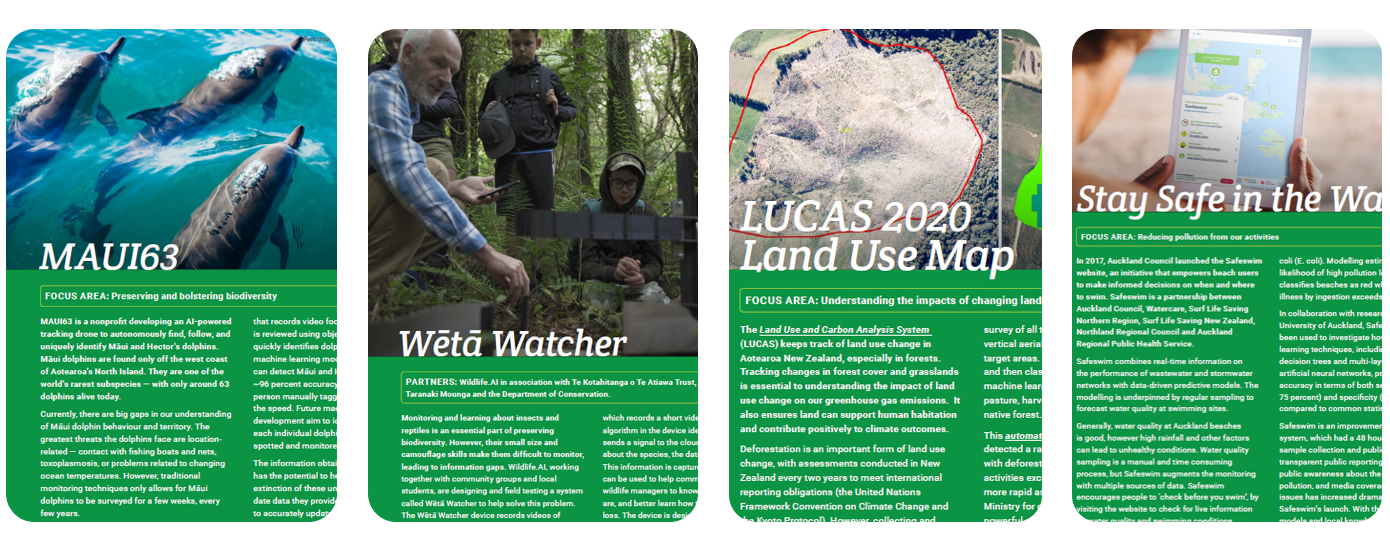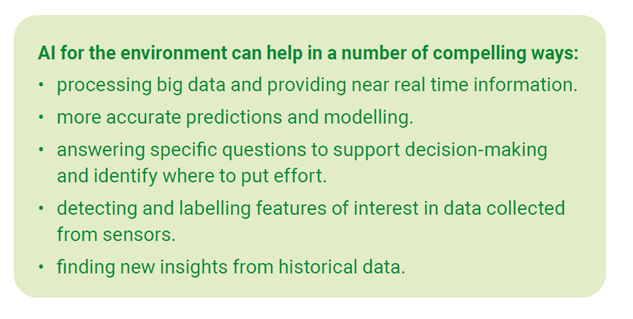Client: AI Forum NZ
AI for the Environment in Aotearoa New Zealand - a new report by the AI Forum of New Zealand was released at Techweek in May 2022. This significant report provides an analysis of opportunities and benefits of applying artificial intelligence to support environmental sustainability in Aotearoa New Zealand.
Matt Lythe from Lynker Analytics managed the research team that developed the report which included Antistatic, wildlife.AI and Tahito.
The report utilised the expertise of many people in the field to explore the huge possibilities for AI to assist with the collection, analysis, and modelling of environmental data at scale. It provides an overview of the current state of activity, and looks at the opportunities, barriers, and areas of action we need to take to realise a thriving ecosystem. This research was conducted at the request of the Ministry for the Environment (MfE) and Statistics New Zealand (Stats NZ), who have an important role in the environmental and monitoring system in Aotearoa New Zealand.
60 projects across the public and private sectors that specifically aim to improve environmental outcomes were analysed. These projects provided representative examples of existing R&D and production systems delivering insights about current capabilities, capacity and distribution across the public and private sector, application area, and overall end user utility of AI for the environment. Several stand out projects were profiled including the land cover analysis of deforested areas conducted by the Lynker Analytics Consortium for MfE.
Case studies highlighted in the report
The research found that current projects engage a range of AI capabilities, concentrating in a few areas. For example, species recognition or identification is often used for projects that focus on preserving biodiversity. The overall state of our AI ecosystem in NZ was assessed at level two: active on the Gartner AI maturity model. At this level, there is active experimentation, mostly taking place in a data science context although there are some advanced outliers which are highlighted in the report.
The researchers noted that New Zealand's environment faces multiple threats and is besieged in numerous ways, mostly as a result of human actions. These threats include thousands of species threatened or at risk of extinction, shrinking wetlands, a warming climate leading to more regular droughts and extreme rainfall events and decreasing water quality.
The report also found that data on the state of the environment is fragmented and reliant on systems designed to support regional needs. It concluded that AI technology provides an important part of the solution to this problem and that we should look beyond the current methods of data collection, and determine whether ‘generational jumps’ that utilise more sensors, cloud computing, satellite imagery and other tools can assist at scale.
More information:
AI Forum website with summary and link to the report
AI for the Environment in Aotearoa New Zealand Report
Deliverables:
1. Research report with key findings and recommendations.



